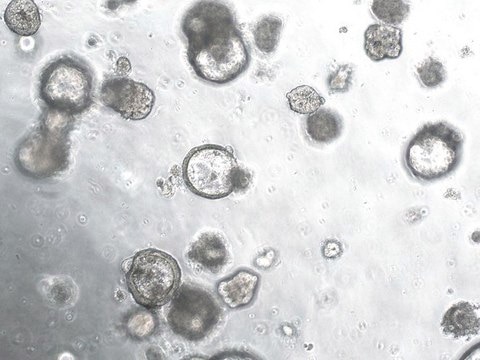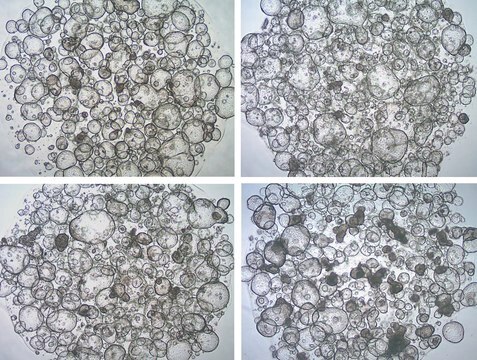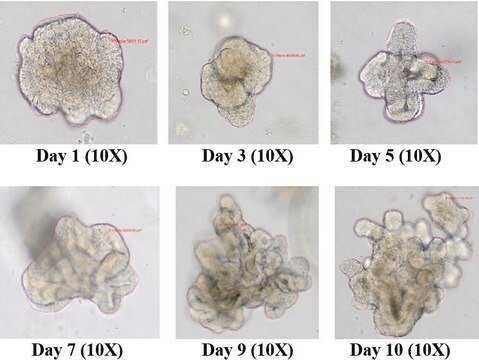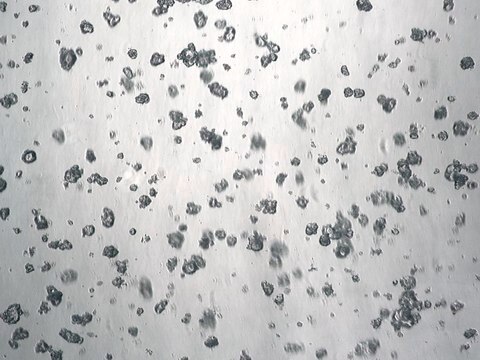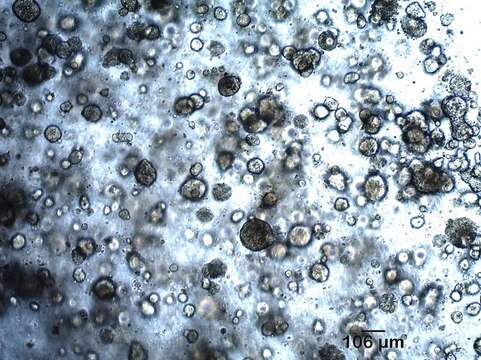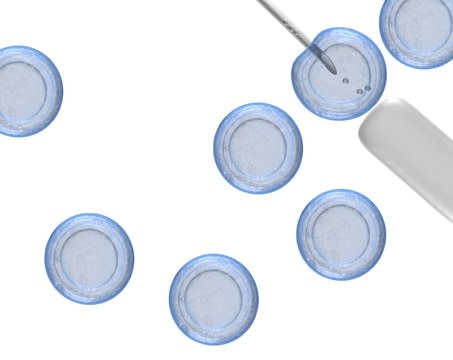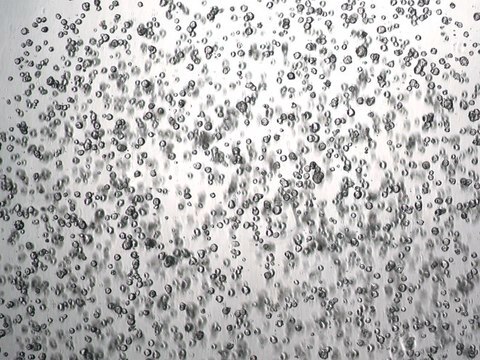SCC713
3dGRO® Pancreatic Organoids (PPTO.90)
Synonym(s):
PDAC Organoid, Pancreatic Cancer Organoid, Pancreatic Ductal Organoid, Pancreatic Tumor Organoid
Sign Into View Organizational & Contract Pricing
All Photos(2)
About This Item
UNSPSC Code:
41106514
Recommended Products
biological source
human
Quality Level
packaging
vial of ≥1500 organoids vial
manufacturer/tradename
Millipore
technique(s)
cell culture | stem cell: suitable
shipped in
liquid nitrogen
storage temp.
−196°C
Application
- Viability: >=1500 viable organoids/vial
- Organoid Growth: Pass
- Cells are tested negative for infectious diseases by a Human Essential CLEAR panel by Charles River Animal Diagnostic Services.
- Mycoplasma Contamination: Negative
- STR Profile: Pass
Features and Benefits
Cryopreserved patient derived pancreatic cancer organoids (PDOs)
Target description
The pancreas is both an endocrine and exocrine organ that plays role in digestion and metabolic homeostasis. Endocrine compartments include the alpha and beta cells which secrete the hormones glucagon and insulin and exocrine compartment including acinar cells, which store and secrete digestive enzymes and highly branched, tubular epithelial tree–like ductal networks. Pancreatic ductal adenocarcinoma (PDACs) is one of the most lethal forms of cancer with 5-year survival rates less than 8% and is projected to be the second most common cause of cancer-related deaths by 2030. Recent breakthroughs in three-dimensional (3D) culture methods have led to the development of organoid culture platforms, which allow researchers to perform translational research on long-term in vitro cultures not limited by barriers present in 2D culture or animal models. We now offer a comprehensive collection of patient derived pancreatic ductal adenocarcinoma cancer (PDAC) organoids for cancer research and drug discovery applications.Cell Line Characteristics
- Sex: Female
- Age: 57 Years
- Organ: Pancreas (Primary Tumor)
- Disease: Ductal Adenocarcinoma (KRAS mutation: G12V)
Storage and Stability
Store in liquid nitrogen. The organoids can be cultured for at least 10 passages after initial thawing without significantly affecting the cell marker expression and functionality.
Other Notes
3dGRO® is a trademark of KGaA, Darmstadt, Germany.3dGRO® organoids were derived utilizing HUB Organoid Technology.The purchaser of this product shall agree to HUB′s terms of use, which shall be separately acknowledged and accepted by such purchaser, prior to transfer of this product to purchaser.
Legal Information
3dGRO is a registered trademark of Merck KGaA, Darmstadt, Germany
Disclaimer
RESEARCH USE ONLY. This product is regulated in France when intended to be used for scientific purposes, including for import and export activities (Article L 1211-1 paragraph 2 of the Public Health Code). The purchaser (i.e. enduser) is required to obtain an import authorization from the France Ministry of Research referred in the Article L1245-5-1 II. of Public Health Code. By ordering this product, you are confirming that you have obtained the proper import authorization.
Unless otherwise stated in our catalog or other company documentation accompanying the product(s), our products are intended for research use only and are not to be used for any other purpose, which includes but is not limited to, unauthorized commercial uses, in vitro diagnostic uses, ex vivo or in vivo therapeutic uses or any type of consumption or application to humans or animals.
Storage Class Code
12 - Non Combustible Liquids
WGK
WGK 2
Flash Point(F)
Not applicable
Flash Point(C)
Not applicable
Certificates of Analysis (COA)
Search for Certificates of Analysis (COA) by entering the products Lot/Batch Number. Lot and Batch Numbers can be found on a product’s label following the words ‘Lot’ or ‘Batch’.
Already Own This Product?
Find documentation for the products that you have recently purchased in the Document Library.
Our team of scientists has experience in all areas of research including Life Science, Material Science, Chemical Synthesis, Chromatography, Analytical and many others.
Contact Technical Service